- Home
- Philip Pullman
Count Karlstein Page 7
Count Karlstein Read online
Page 7
He was nowhere to be seen. Behind me, I could hear a commotion from the tavern—angry shouts that I didn’t like the sound of. The road and the bridge were empty, gleaming white in the moonlight; and the river ran swiftly past, glinting and throwing up little liquid sparks of silvery light, and not helping a bit. I peered hard into the darkness beyond the river, where the trees began and the road curved up around the mountain. Was that a movement among the tree trunks? It was too dark, and too far off. The forest was full of shadows. And on this side of the river—just the village, the snow-covered roofs, the muddy road, the yellow lights in the windows, the smoke from the chimneys rising straight up, thick and white, into the clear bitter air.
I’d lost them.
I turned slowly back to the Jolly Huntsman, shivering with the bone-jarring cold, and weary with despair. Doctor Cadaverezzi, I thought, you’d better look after her. You’re all she’s got now. And then I thought: if all she’s got to save her from Count Karlstein and the Demon Huntsman is a traveling swindler wanted by the police—poor Lucy. Poor Lucy!
I wish it to be placed on record at the very start of this report that I, that is me, Josef Snitsch, Police Sergeant, holder of the Cadets’ Neatness and Smart Turn-Out Award (2nd Class), officer in charge of the Police Station at Karlstein, told my constable, Alphonse Winkelburg, Police Constable, that there was to be no eating on duty.
I told him most particular about this, as I have had trouble with this constable in the past. There was an occasion when he was unable to draw his truncheon with the maximum effectiveness, as laid down in the Police Handbook, due to the presence of a meat pie in the operative hand; and the felon we was attempting to apprehend on that occasion got away scot-free.
So I said to the aforesaid constable before I left the guardroom that he was to be stern and vigilant, and not to let a crumb pass his lips, due to the Cabinet of Wonders what he had to guard.
The aforesaid Cabinet was took into custody following the disappearance of its owner, a Doctor Crackanutsi, an Italian. The aforesaid Doctor Catchanitsi had vanished under suspicious circumstances following the false alarm of a fire at the Jolly Huntsman. His Cabinet was arrested instead, him not being there to arrest, and held in the Police Station pending further developments.
This was a dangerous mission for Constable Winkelburg, him not being very swift either in wind or limb and the Cabinet being furnished with all manner of foreign devices and articles of a suspicious nature, rendering it highly risky to touch it. While we was conveying it to the Police Station, Constable Winkelburg accidentally touched a hidden spring what released an unexpected jet of ink what I was not expecting and so was unable to avoid. Some rowdy bystanders had to be severely reprimanded for appearing to find this amusing.
The aforesaid ink having rendered my face temporarily unsuitable for the efficient performance of my duties as laid down in the Police Handbook, I left Constable Winkelburg on guard, as described above, warning him sternly against eating on duty, and removed myself to the washroom of the Police Station in order to remove the ink by which I had been defaced. Before going out, however, I removed my helmet and placed it in the bracket designed to hold it. (This bracket is my own design. Drawing enclosed.* It is my belief that, if adopted, this bracket would increase the efficiency of the Police Force one hundredfold. The principle is simple. By placing all unattended business in the upturned helmet the owner is unable to wear it until dealt with. I bring this to the attention of the Authorities not in the hope of profit but in the interests of efficiency.)
Finding that a quantity of the offending ink had soaked into my whiskers, I was some little time in the washroom, and when I emerged, I found Constable Winkelburg in an attitude of guilt, attempting to conceal a paper bag about his person and bearing evidence of the recent consumption of cheesecake upon his chin. I reprimanded him severely, and, being in a state of indignation, did not investigate the inside of my helmet before placing it firmly upon my head. It was then that I discovered that Constable Winkelburg, hearing my approach, had dropped the larger uneaten portion of his cheesecake into the helmet.
It is my hope that this introductory preamble will explain my unpolicelike bearing and undignified appearance at the time of the arrest.
I now come to the events what followed.
Knowing the habits of felons, I was able to predict that the criminal in question, Doctor Calamatipsy, would attempt to regain possession of the Cabinet of Wonders, and so I ordered Constable Winkelburg to hide in the guardroom with the lamp turned out, in a state of darkness. I, meanwhile, concealed myself in an adjacent cupboard, with my truncheon drawn in readiness.
Several hours appeared to pass.
Eventually our vigil was rewarded.
Using a key of some ingenious or foreign manufacture, the villain aforesaid, Doctor Canackadesky, inserted himself through the portals of the Police Station. As described above, I was expecting him, due to my knowledge of the felonious mind, but I was not expecting him to be accompanied by a female of tender years.
I transcribe their conversation exactly. I am able to do so with perfect confidence, being as how I gained the Ernst Stuffelbaum Plate for Memory Training in the Police Academy.
Their words was as follows:
SHE: I am surprised at you, Doctor Calackabitsy, being as how I thought you was honest.
HE: Oh, I am as honest as the day is long.
SHE: But this is winter and the days are very short.
HE: That is why I am less honest in the winter than in the summer. Now let us just retrieve my Cabinet and then we can retreat to some place of safety at a convenient distance.
SHE: But, Doctor, I seen you with my own eyes. I have no alternative but to reprimand you severely. When that man was bending over applying his eyes to the eyepiece and I dabbed his face with all paint like what you said while all them cannons was going off and that, I seen you pick his pocket. You cannot deny it.
HE: Indeed I cannot. I have his wallet here, I am glad to say.
SHE: Then that is very wicked of you.
HE: The public is a very nervous and shy creature. It has to be helped to invest in magnificent enterprises like the Cabinet of Wonders.
SHE: You must not excuse your stealing by calling it helping your victims to invest. I am very grateful to you for helping me, but you are wicked and dishonest. I would never of agreed to help you if I had have known that it would lead me into enterprises of a felonious nature.
HE: Very wise. Now let us retrieve my Cabinet while these two policemen are temporarily vacating the premises.
SHE: And then will you help me rescue Charlotte?
HE: Yes. Now hold the lantern high while I attempt to lift the Cabinet.
At that point, deeming it an appropriate moment, I sprang out from my place of concealment in order to apprehend the villain. Unfortunately, while concealing myself I had overlooked the presence of a bucket in the cupboard and had inserted my left foot therein, what got in the way of my springing out and caused me to fall heavily and dent my helmet.
When I had recovered my composure, I addressed the villain.
“Doctor Crackawhipsy,” I announced, “I arrest you in the name of the law.”
To my astonishment I saw that the person in question was not Doctor Caramolesty at all, but an agent of the Venetian Secret Service, posing under an alias. He greeted me by name. I was temporarily unsure of the correct procedure, being as how the Police Handbook does not cover cases like this, when I caught sight of the recumbent boots of Constable Winkelburg. It seemed as how he had fallen asleep while on duty. I could hardly believe my eyes. I woke him up and reprimanded him severely, and under the distraction afforded by this I was able to rapidly and swiftly evaluate the situation.
Using my Police training, I was able to come to the conclusion that the Venetian secret agent and Doctor Canalarresty were one and the same person, and that one of them was masquerading as the other, contrary to the law. I had no alternative but t
o apply the full rigor of the powers at my disposal.
I said to the aforesaid villain that I was arresting him, and began to caution him in the manner laid down in the Police Handbook.
He then said the following words:
“Lucy, blow the lantern out.”
The young female person treacherously did so, plunging the entire Police Station into a state of darkness. Calling to Constable Winkelburg to come to my aid, I leapt fearlessly forward and grappled with the miscreant, receiving several heavy blows but succeeding after a fierce struggle in subduing him and applying the Police Handcuffs, in the manner laid down in the Police Handbook.
I called in an authoritative way for the lamp to be re-lit.
When this was done, I found to my dismay that I had arrested Constable Winkelburg, that he had simultaneously arrested me, and that we were now inextricably linked by means of the aforesaid handcuffs. Doctor Caracapesty then made several observations of an opprobrious and offensive nature.
Having done that, he and his accomplice were about to withdraw with their Cabinet when the door of the Police Station was flung open and there entered a squad of reinforcements from the Geneva Police, under the command of Inspector Hinkelbein.
Inspector Hinkelbein expressed his surprise at finding Constable Winkelburg and myself trussed up in an undignified and unpolicelike manner. I attempted to explain the reasons for it, but he cut me short. This is the first opportunity I have had of clearing my name.
The inspector then arrested Doctor Caravelupsy, accusing him of being Luigi Brilliantini, the well-known confidence trickster. It was clear to me that the inspector had made an error of identification, and I was about to explain it to him when he cut me short.
Constable Winkelburg then drew the inspector’s attention to the fact that the girl had disappeared during the fracas. The inspector expressed his surprise that two grown officers of the Police Force should be beaten by one little girl. I attempted to correct his interpretation of the facts, but he cut me short.
The prisoner was then conveyed to the cells. Constable Winkelburg and myself was released from our handcuffs and severely reprimanded. I then informed Inspector Hinkelbein that he could expect to receive the Order of the Golden Banana, but he mistook my meaning. I tried to explain, but he cut me short.
The prisoner, Doctor Caravanipsky, is at present under guard in the Police Station, awaiting transit to Geneva, there to answer charges of impersonation.
(Signed)
Police Sergeant
[* Drawing now missing.]
After I left Castle Karlstein, I must confess I felt a trifle disconcerted; and that was a feeling I had not experienced since being surrounded by savage tribesmen in the wilds of Turkestan.
However, then, as now, I was able to console myself with the reflection that an English gentlewoman can rise above any circumstances, given intelligence and a loaded pistol. Both of those properties I had, and, tucking the latter into my muff, I set off to find some quiet spot in which to exercise the former.
Very soon I found a deserted graveyard overlooking a rocky gorge. It was an admirable place; not only did it command an extensive view of some very fine geological formations, but it also had that gloomy air which invariably leads superstitious persons to declare such a place haunted and avoid it. And solitude was exactly what I wanted.
Later in the afternoon, however, I began to regret the action of that very foolish policeman in banning me from the village, since it made it necessary to camp. Fortunately I had my very useful Hermes patent folding cart with me, containing every necessity for survival; and, when I had come to certain conclusions regarding Count Karlstein, I set off down the road toward the forest, where I was sure, I thought, of finding some secluded glade in which to pitch my tent. I was very sorry that my maid Eliza had not been able to find me. She has a practical nature (which is good) and a warm heart (which is better) but a soft head (which is no good at all). She would be no more capable of walking alone up a deserted road toward a darkened graveyard, haunted or not, than of using the differential calculus. I would not ask her to. Nevertheless, I regretted her absence.
Judge of my surprise, then, when I rounded a bend in the road and encountered the girl herself. She was deep in conversation with a young man, evidently a servant of some kind, whose face seemed somehow familiar to me. I hailed her.
“Oh! Miss Davenport! Thank goodness you’re safe! Thank goodness we’ve found you!” she exclaimed.
I refrained from pointing out that it was I who had found her, and told her what had happened at the castle. She clasped her hands in horror.
“Oh, the wickedness!” she cried. “If only we’d known, we’d never have agreed to look for them! Oh, the monster of deceit and treachery—” and so on. I had no idea what she was talking about; I let her ramble for a moment or so, while I examined the young man.
“Have I not seen you before?” I inquired.
“I took the liberty of accompanying your maid, ma’am, so as to protect her in these wild regions,” he said. “I have had the honor of serving you before, as it happens. I was a coachman, ma’am, and I drove you into Geneva, which was where I had the pleasure of meeting Miss Eliza here.”
A smart, well-spoken, polite young man. I approved. It was plain, even in the twilight, that the two of them were in love.
“What is your name?”
“Max Grindoff, ma’am, at your service.”
“And you are a coachman, you say?”
“Not anymore, ma’am. I’m the gentleman’s personal attendant and lackey in chief to the great Doctor Cadaverezzi, who owns the Cabinet of Wonders, ma’am.”
“Hmm. I see. Now, Eliza, you said something just now about looking for them. To whom were you referring?”
“The little girls, miss! Charlotte and Lucy!”
“Explain.”
She did so. As she spoke, Count Karlstein’s plan—though not, of course, the reasons for it yet—began to reveal itself to me. He had treated the girls in such a manner that they had run away; he had concealed the fact by telling me a pack of lies about their being ill; and now he was trying to recapture them.
“I shall have to see to this,” I said. “Now, Grindoff, my man. You have been looking for these girls since this morning, I take it?”
“Well, ma’am…” He shuffled his feet.
“But with no success, evidently.”
“None at all, ma’am. But this forest is remarkable large and they might be anywhere. They might even have gone over the mountains into the next valley or beyond, ma’am. They could be in Italy—”
“Stuff and nonsense. They won’t be far away. No, there’s only one thing to do. Count Karlstein knows of my interest—he won’t be taken in by a second visit from me. But he doesn’t know you. You’ll have to go up to the castle.”
“What, me, ma’am? What for, if you don’t mind my asking?”
“To find out why they ran away in the first place. Ask the servants. Introduce yourself into the kitchen. I’m sure you can manage that.”
“But my master, ma’am,” he said, “he’ll be expecting me back at the Jolly Huntsman any minute now. He’s got a show to perform tonight.”
“Well, if you hurry, you could be there and back before he begins.”
“You’ll have to leave your trombone with us, Maxie,” said Eliza.
“It ain’t a trombone, Eliza, it’s a coach-horn,” he said.
I looked at it—a long, straight brass instrument. I asked to examine it more closely and he handed it to me.
“I saw a South American blowpipe once,” I told them, “in Signor Rolipolio’s Exhibition at Clarence Gardens. It very much resembled this. Signor Rolipolio himself was kind enough to demonstrate the art of firing them….Allow me.”
Among the provisions I always carry, a bag of dried peas holds an honored place. I extracted one now, placed it in the mouthpiece of the coach-horn, and took aim at a nearby sapling. The pea flew out and struck the
slender trunk full in the center.
“Well, I’ve never seen that done before,” said Grindoff. “That’s a good trick, that is. My master’d like to use it in his act, I’ve no doubt.”
“Oh, Maxie! Do be careful!” said Eliza. “Don’t you get caught by the count and locked in the cellars, will you, my love?”
“Well, I, er…”
“Eliza,” I said, “you must assist me in finding somewhere to camp. We shall meet Mr. Grindoff, when he returns, in some convenient place.”
“We saw a woodcutter’s hut, miss, just a little way back,” she said. “It’s all broken down, but we could put up your tent easy enough. And there’s water from the stream nearby. We’ll see you there, Maxie, my love. All right?”
He opened and shut his mouth once or twice, but evidently the force of his affection for her had rendered him incapable of resistance. He nodded sadly and trudged up the road toward the castle.
“An excellent young man, Eliza,” I said.
“I must confess I fell in love with him in Geneva, miss,” she said, “when I seen him on the coach, all proud, with his harness jingling and his uniform all smart and his trombone glittering in the sun….”
“Yes, yes, I understand, my dear. I am not a stranger to the noble passion. Signor Rolipolio quite stole my heart three years ago….But it was not to be. Fate parted us.”
“Oh, dear, miss,” she said, deeply sympathetic. Anything with a hint of romance in it melted her heart at once—poor simple girl. “How sad for you. And him too. I bet he’s pining his heart away in a foreign land….”
“No doubt, no doubt. He is the only man, Eliza, who was my equal in point of character, audacity, and intellect. But some foolish trouble over passports or papers meant that he had to leave the country, and I fear that there was some political trouble with the government of his native land….Ah well, let us put these melancholy thoughts aside. Duty calls!”

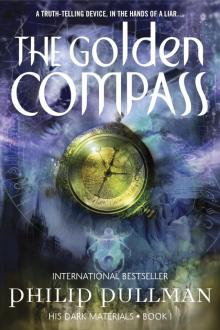 The Golden Compass
The Golden Compass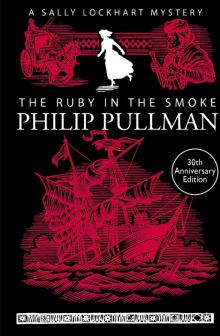 The Ruby in the Smoke
The Ruby in the Smoke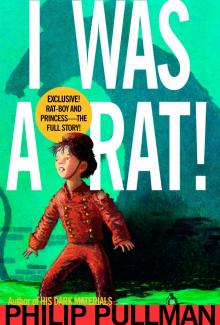 I Was a Rat!
I Was a Rat!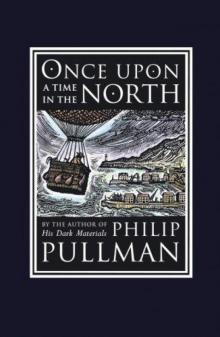 Once Upon a Time in the North
Once Upon a Time in the North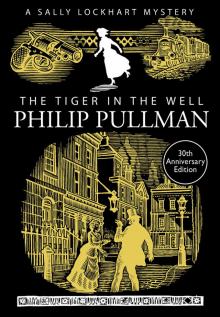 The Tiger in the Well
The Tiger in the Well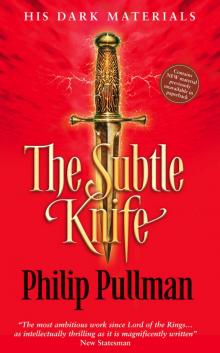 The Subtle Knife
The Subtle Knife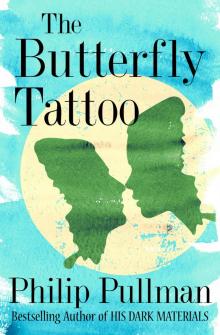 The Butterfly Tattoo
The Butterfly Tattoo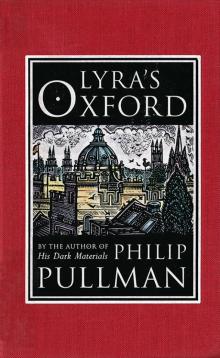 Lyra's Oxford
Lyra's Oxford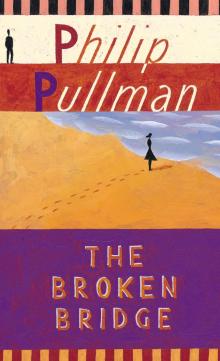 The Broken Bridge
The Broken Bridge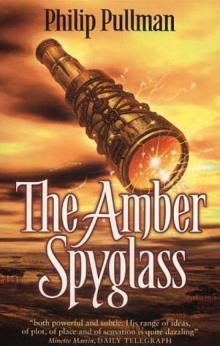 The Amber Spyglass
The Amber Spyglass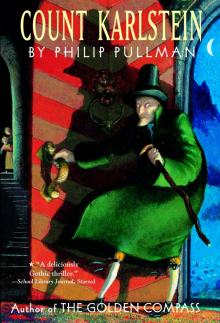 Count Karlstein
Count Karlstein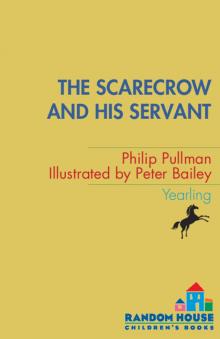 The Scarecrow and His Servant
The Scarecrow and His Servant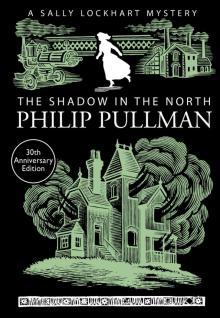 The Shadow in the North
The Shadow in the North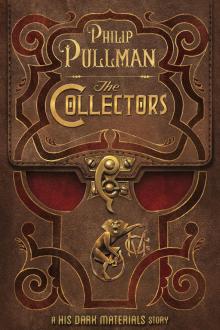 The Collectors
The Collectors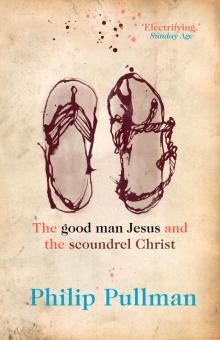 The Good Man Jesus and the Scoundrel Christ
The Good Man Jesus and the Scoundrel Christ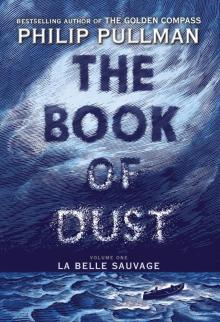 La Belle Sauvage
La Belle Sauvage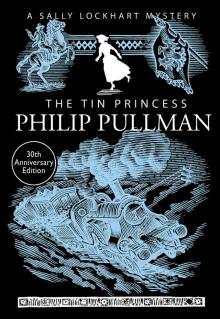 The Tin Princess
The Tin Princess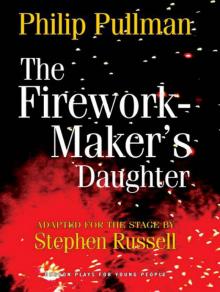 The Firework-Maker's Daughter
The Firework-Maker's Daughter The Book of Dust: The Secret Commonwealth (Book of Dust, Volume 2)
The Book of Dust: The Secret Commonwealth (Book of Dust, Volume 2)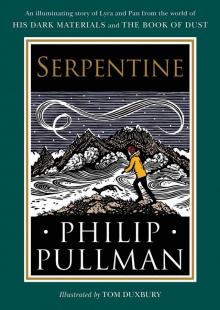 Serpentine
Serpentine Daemon Voices
Daemon Voices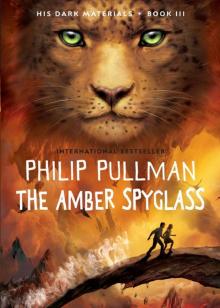 The Amber Spyglass: His Dark Materials
The Amber Spyglass: His Dark Materials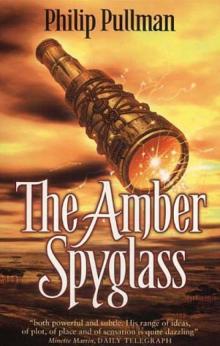 The Amber Spyglass hdm-3
The Amber Spyglass hdm-3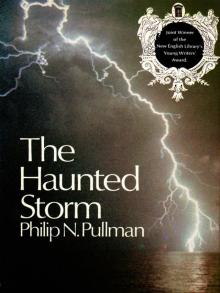 The Haunted Storm
The Haunted Storm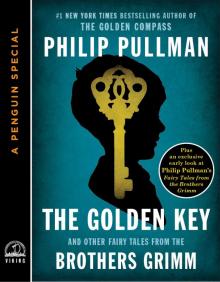 The Golden Key
The Golden Key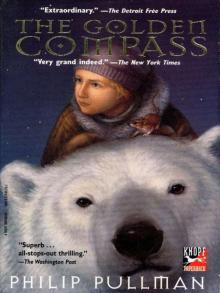 His Dark Materials 01 - The Golden Compass
His Dark Materials 01 - The Golden Compass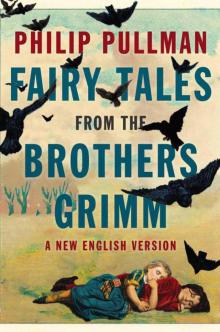 Fairy Tales from the Brothers Grimm: A New English Version
Fairy Tales from the Brothers Grimm: A New English Version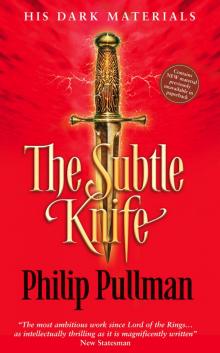 His Dark Materials 02 - The Subtle Knife
His Dark Materials 02 - The Subtle Knife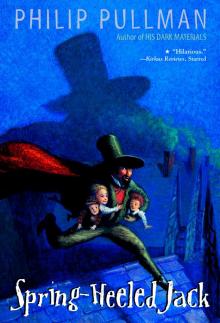 Spring-Heeled Jack
Spring-Heeled Jack The Golden Compass hdm-1
The Golden Compass hdm-1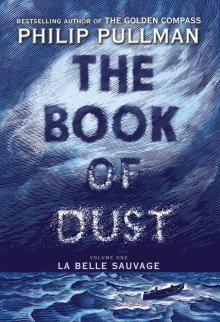 The Book of Dust, Volume 1
The Book of Dust, Volume 1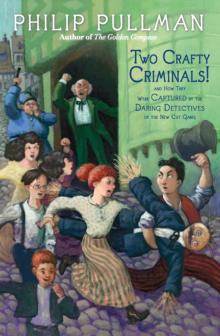 Two Crafty Criminals!
Two Crafty Criminals!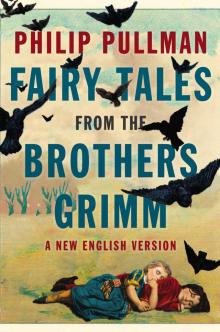 Fairy Tales from the Brothers Grimm
Fairy Tales from the Brothers Grimm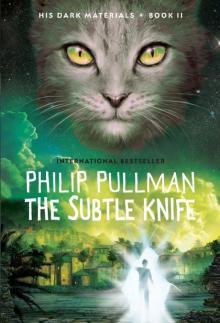 The Subtle Knife: His Dark Materials
The Subtle Knife: His Dark Materials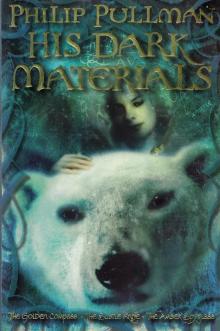 His Dark Materials Omnibus
His Dark Materials Omnibus The Golden Compass: His Dark Materials
The Golden Compass: His Dark Materials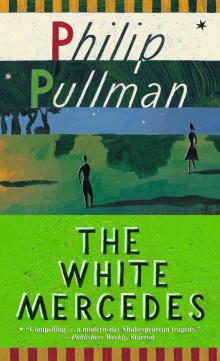 The White Mercedes
The White Mercedes